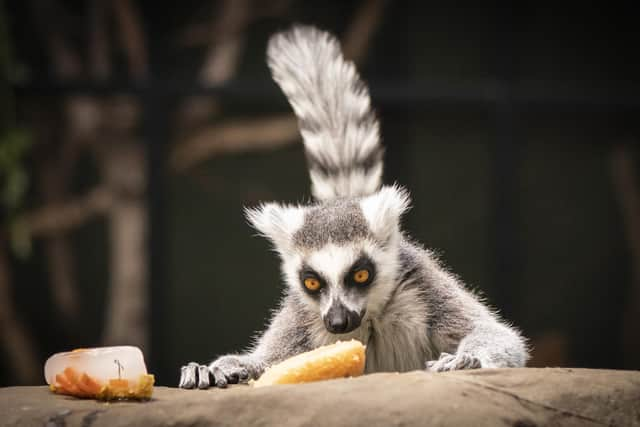Dozens of dangerous wild animals legally owned by people in Bassetlaw
and live on Freeview channel 276
Wildlife charity the Born Free Foundation said improved regulation is needed, after its research found thousands of wild animals are owned privately across Great Britain.
Figures obtained by the charity from freedom of information requests sent to councils reveal there are 26 animals covered by dangerous wild animal licences in Bassetlaw.
These animals include 17 ostriches.


Advertisement
Hide AdAdvertisement
Hide AdThe mammals licenced to be privately owned in the area are a zebra, six lemurs, and two capuchin monkeys.
Chris Lewis, Born Free's captivity research officer said: "The Dangerous Wild Animals Act was intended to make the keeping of such animals categorised as 'dangerous' a wholly exceptional circumstance.
"However, Born Free’s ongoing research paints a very different picture."
He added regulations on the keeping and trading of wild animals kept as pets are "in urgent need of review".
Advertisement
Hide AdAdvertisement
Hide AdAcross Great Britain, the charity found over 2,700 dangerous wild animals were licenced to be owned privately. They include more than 200 wild cats and 250 primates.
It estimates there are also 400 venomous snakes "kept in British homes", more than 10 times the number in zoos.
The East Midlands was home to a wide array of animals, including dozens of venomous snakes and wildcats.
Mr Lewis added regulations on the keeping and trading of wild animals kept as pets are "in urgent need of review".
Advertisement
Hide AdAdvertisement
Hide AdDr Mark Jones, the charity’s head of policy said: "It is unbelievable that, in this day and age, so many dangerous animals, including big cats, large primates, crocodiles and venomous snakes, continue to be legally kept in people’s homes in the UK."
A Department for Environment, Food and Rural Affairs spokesperson said anyone wishing to keep an animal under the Dangerous Wild Animals Act must be vetted and apply for a licence which sets out conditions on caring for the animal.
They added: "We keep this legislation under regular review to ensure it remains effective in keeping the public safe."
They said the Government increased the maximum prison sentence for animal cruelty to five years in 2021, and added it is currently bringing forward legislation to prohibit primates being kept as domestic pets.